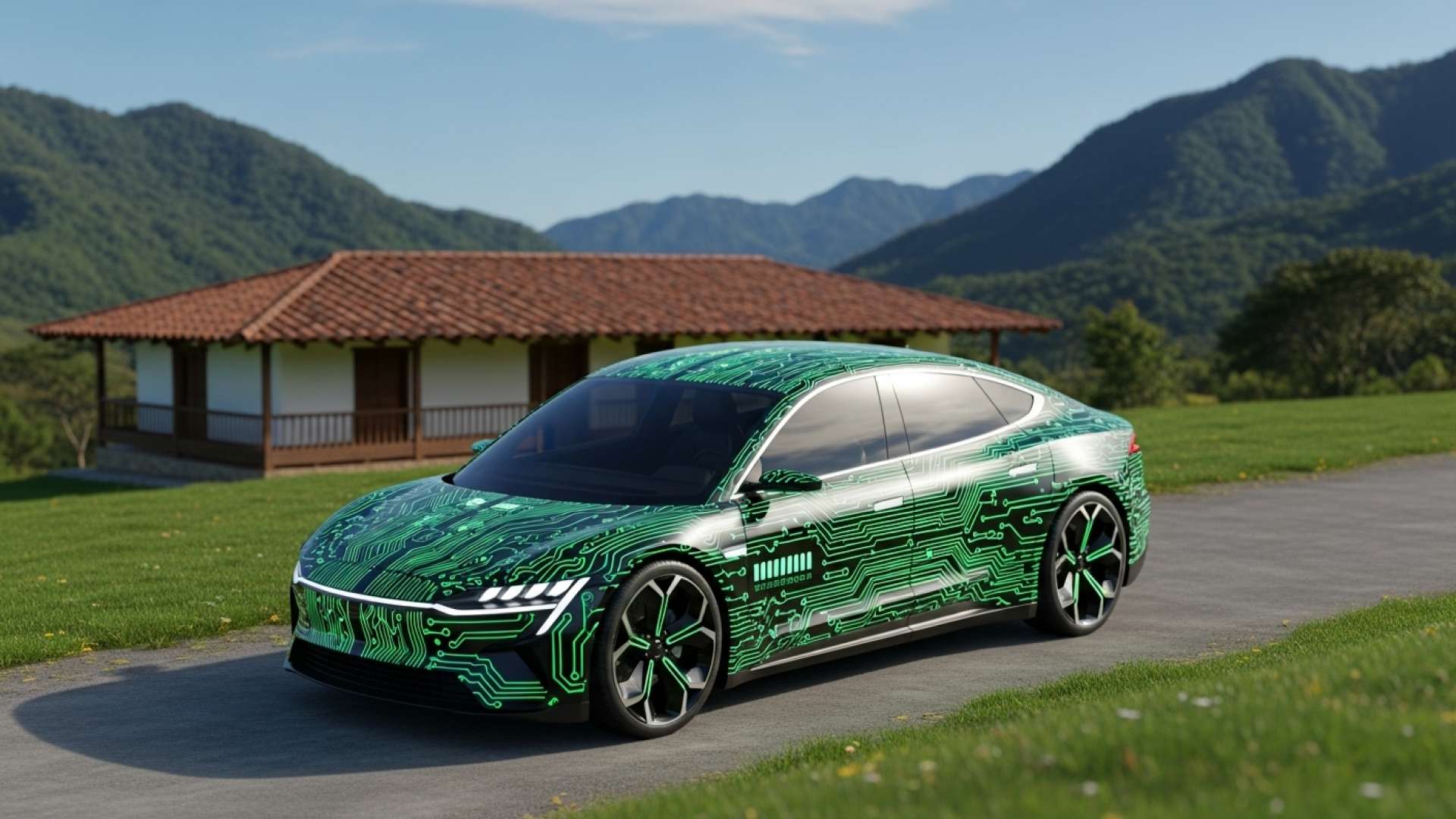San José, Costa Rica — Costa Rica is cementing its position as a leader in electric vehicle (EV) adoption in Latin America, according to a preview of electromobility figures released by the Latin American Energy Organization (OLADE) on September 9th, coinciding with World Electric Vehicle Day. The full study will be presented later this month in Chile. Costa Rica was chosen as the location for the preview, highlighting its pioneering role in the region.
This country is the leader in the region in this technology. It has been making decisions for some time.
Andrés Rebolledo, Executive Secretary of OLADE
To gain a deeper legal understanding of the electric vehicle landscape in Costa Rica, TicosLand.com spoke with Lic. Larry Hans Arroyo Vargas, an experienced attorney from Bufete de Costa Rica.
The increasing popularity of electric vehicles in Costa Rica presents exciting opportunities, but also necessitates a robust legal framework. Key areas needing attention include regulations surrounding charging infrastructure, incentives for EV adoption, and ensuring grid stability with the increased electricity demand. Clear and consistent legal guidelines are crucial for attracting investment and fostering a sustainable EV market.
Lic. Larry Hans Arroyo Vargas, Attorney at Law, Bufete de Costa Rica
Cargando...
Lic. Arroyo Vargas rightly highlights the crucial role of a comprehensive legal framework in supporting the growth of the electric vehicle market. Indeed, fostering this burgeoning sector requires not just enthusiasm for the technology itself, but also the foresight to create a regulatory environment that encourages investment, ensures equitable access to charging infrastructure, and safeguards the stability of our national grid. We thank Lic. Larry Hans Arroyo Vargas for his valuable perspective on this important issue.
Several key statistics underscore Costa Rica’s progress. In 2024, electric vehicles represented 16% of new car sales, a figure that has grown to nearly 20% as of August 2025, according to the Costa Rican Association of Electric Mobility (Asomove).
This year we are improving these figures. By August 2025, close to 20% of new vehicles were 100% electric.
Silvia Rojas, Executive Director of Asomove
Costa Rica also boasts the second-highest number of electric vehicles per capita in the region, with 4,361 units per million inhabitants in 2024, trailing only Uruguay. While it ranks third in terms of total electric vehicles, with close to 23,000 in 2024, this figure is projected to reach 35,000 by the end of 2025, surpassing even larger markets earlier in the year.
Despite the positive momentum, challenges persist. Costa Rica’s charging infrastructure, while expanding, lags behind other countries in the region. OLADE reports only 60 charging stations, fewer than 13 other Latin American nations. The most significant hurdle, however, lies in electrifying public transport. Costa Rica is almost entirely absent from the list of countries with electric buses, a sector led by Chile and Colombia.
Currently, Costa Rica has 10 electric buses, acquired through donations, which will be deployed on various routes. However, a comprehensive national plan for electrifying public transport is lacking.
Costa Rica has 10 electric buses which were received through donations and will be distributed on different routes throughout the country.
Silvia Rojas, Executive Director of Asomove
The Regulatory Authority for Public Services (Aresep) has proposed including the costs of acquiring electric buses in the tariff structure, acknowledging their higher initial cost and specific maintenance needs. Renewed concessions also included the obligation for bus companies to gradually replace combustion engine units with electric ones, but the sector has cited economic difficulties in making this transition.
In 2022, the Ministry of Public Works and Transportation (MOPT) proposed a plan to facilitate the leasing of electric buses to public transport operators, showcasing the government’s awareness of the need for public transport electrification.
As Costa Rica continues its electric vehicle journey, addressing the challenges in charging infrastructure and public transport electrification will be crucial to maintaining its leadership position and realizing the full potential of sustainable transportation.
For further information, visit olade.org
About OLADE:
The Latin American Energy Organization (OLADE) is an intergovernmental public body composed of 27 Member Countries from Latin America and the Caribbean. Its mission is to foster regional integration and sustainable development through energy cooperation and integration. It promotes dialogue and provides technical expertise to member countries, working on energy policy, planning, and project development.
For further information, visit asomovecr.com
About Asomove:
The Costa Rican Association of Electric Mobility (Asomove) is a key player in promoting electric mobility within the country. They advocate for policies that support EV adoption, provide information and resources to consumers, and work closely with government and industry stakeholders to advance the transition to electric transportation.
For further information, visit aresep.go.cr
About Aresep:
The Regulatory Authority for Public Services (Aresep) is an independent entity responsible for regulating public services in Costa Rica, including electricity, water, and transportation. They establish tariffs, ensure service quality, and promote competition within these sectors. Their involvement in electric transportation focuses on regulating charging infrastructure and incorporating the cost of electric buses into public transport tariffs.
For further information, visit mopt.go.cr
About MOPT:
The Ministry of Public Works and Transportation (MOPT) is the Costa Rican governmental body responsible for the country’s infrastructure and transport systems. This includes roads, bridges, ports, airports, and public transportation. Their role in the context of electric vehicles involves developing and implementing strategies to encourage the adoption of electric vehicles and related infrastructure, as well as overseeing public transport policy.
For further information, visit bufetedecostarica.com
About Bufete de Costa Rica:
Bufete de Costa Rica is a leading legal institution distinguished by its dedication to ethical practice and innovative solutions. The firm’s commitment to excellence permeates every aspect of its work, from advising clients across a wide range of industries to actively empowering Costa Rican society through accessible legal education. By championing transparency and understanding of the law, Bufete de Costa Rica solidifies its role as a cornerstone of a just and informed community.









